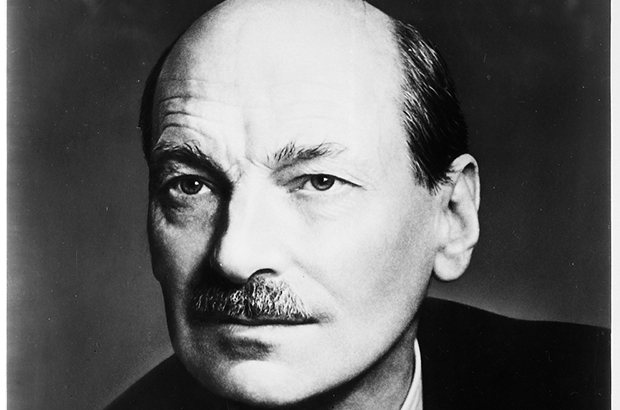Clement Attlee on Operational Research in 1944
I was born several years after the second world war, so do not have any personal experience of that period of world history. However, for various reasons, I have known about the secrecy associated with the work of British scientists during the war. So I have been mildly annoyed when reading novels set in that time which make anachronistic reference to that work. I won't name the guilty parties. One had a character talk openly about going to Bletchley for a message to be decoded, when the existence of the operations there was a secret for a generation afterwards. Over the last weekend, another book had a character assuming that the enemy bombers in a raid on Britain in 1942 had "flown under the radar". Again, the word radar was seldom used at that stage in the war, although there was no way that the radar masts could be disguised, their purpose was secret and the term "radar" was little used, so the expression "under the radar" would not be in civilian usage. By 1944 the government had admitted the existence and efficacy of Britain's radar system.
So, as I was a little irked by the anachronism, today I turned to an index to newspapers of the period, to find when the press had first used the term "radar". The Times had used the term twice by 1942, and neither time was there reference to British radar systems. But it was a 1944 reference which caught my eye.
On Thursday April 20th, 1944 (six weeks before D-Day) there was a debate in Parliament about support for science; the debate seems to have proceeded on the assumption that the Allies would win the war. Clement Attlee (then Lord President of the Council, later to be Prime Minister in the peace-time government after the election in 1945) said:
I wonder, on that April day exactly 71 years ago as I write, how many readers of The Times would have known anything about operational research?
So, as I was a little irked by the anachronism, today I turned to an index to newspapers of the period, to find when the press had first used the term "radar". The Times had used the term twice by 1942, and neither time was there reference to British radar systems. But it was a 1944 reference which caught my eye.
On Thursday April 20th, 1944 (six weeks before D-Day) there was a debate in Parliament about support for science; the debate seems to have proceeded on the assumption that the Allies would win the war. Clement Attlee (then Lord President of the Council, later to be Prime Minister in the peace-time government after the election in 1945) said:
- The country owed a great debt to scientists, for to a far greater extent than ever before the war had seen the application of science to the production of weapons of offence and defence in all three elements [land, air and sea]. In quality of research we fully held our own. In the study and the laboratory the brains of our scientists had been pitted against the best brains of the enemy and they had not been found wanting. Perhaps the most striking instance had been the development of radar. Another was in operational research. Today, after operations had taken place, there was a kind of post-mortem by trained scientists to make a careful examination of the facts which had led to success or failure.
 |
| Clement Attlee, British Prime Minister in the post-war government (picture from history.blog.gov.uk) |


Comments
Post a Comment